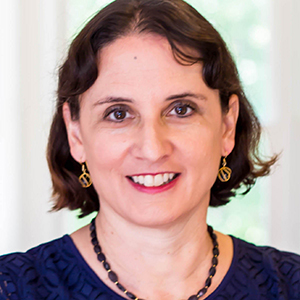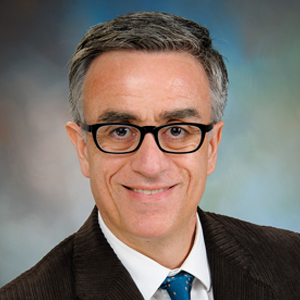Beyond survival
The academic environment is unique for many reasons; it not only cultivates growth and creativity but also gives academicians the opportunities and resources to educate and explore the world around us.
Unfortunately, these opportunities are not always unfettered. Academicians face failure regularly; no matter the effort, no matter the time invested, there is no guarantee of success. Things outside of our control can throw a wrench in an experiment, bringing us back to square one.

Over time, the expectation to produce outstanding results can cause stress to compound, sometimes yielding serious consequences. It has become increasingly important for us to be able to overcome adversity and embrace change in order to thrive in stressful environments.
By developing emotional resilience, we can be adaptable and equip ourselves with tools to manage the stressors we often face, as well as survive in an environment driven by competition and innovation.
Grit and perseverance
One of the wonderful things about being in academia is the independence we have for most day-to-day activities. We don a variety of hats: As scientists, we are fortunate to focus deeply on interesting problems; as educators, we work to change the lives of our students. Unfortunately, this environment also can foster challenging personality traits. This means we may be subjected to toxic environments at times. Surviving and even thriving in such an environment requires an assortment of approaches.
In Robert Sutton’s book “The No Asshole Rule: Building a Civilized Workplace and Surviving One That Isn’t,” the author tells us that at times we all may be the type of personality described in the title, leaving others feeling worse about themselves. He also describes how to recognize this behavior and change a toxic climate in academia and business. Recognizing that we all may be “bad actors” can be a technique to help improve a challenging environment.
“Grit” and “perseverance” are trendy terms used to define a mechanism by which individuals can thrive when they bump against such people or groups in their careers.
We can learn a few lessons from the Navy Seals, who keep going even when faced with the most overwhelming circumstances. Eric Barker dug into the mentality of Seals training and wrote the post “A Navy Seal Explains the 8 Secrets to Grit and Resilience.” Many of these secrets also can help academics.
One secret is about purpose and meaning. When deep into academic drama, it can be easy to forget why we became scientists and educators. As Barker puts it, “Without a good reason to keep pushing, we’ll quit.” It is essential to remind ourselves of these reasons; keeping them in focus as a touchstone can help maintain perspective when dirty looks and flaming emails threaten to consume our energy.
Talk to those who have been immersed in departmental or personal conflict; it is draining and too difficult at times to resolve. The energy is lost, and all aspects of one’s career and personal life can suffer. Keeping perspective and understanding what your professional purpose and meaning are about may just keep things sane.
Another secret is to celebrate small wins. Both Barker and Sutton explain that finding a victory, no matter how minor, is something that helps one maintain a healthy attitude. The Navy Seal trainees have to go through a week as horrible as it sounds: hell week. One of the techniques they use to get through it is “the small victory.” Barker quotes James Waters, a Seal platoon commander: “It feels good. You sit down, have a nice meal, and feel like everything’s great.” Then the torture begins again.
In “The No Asshole Rule,” Sutton explains that these small victories are what you need to string together and share with others who also are suffering.
Also, taking control from bullies limits their domination and can lead to winning the battle. Sutton advises that standing up to the bully is not always effective.
Another approach is emotional detachment: the opposite of being passionately engaged. Emotional detachment means remaining aware of what is happening but removing oneself from the emotion of a stressful situation. Sutton describes how one person implemented a technique — originally used to survive capsizing while whitewater rafting — to make it through withering looks and slights during department meetings. The idea is to flow with the current rather than fight it, to relax and use your feet to push off from boulders. The person thought about this technique when she was subjected to a room full of bullies. Once she remembered how to lift her feet and bounce from the critics, the emotional detachment became empowering, and that survival skill allowed her to undermine the negative behavior of others.
Simply leaving a bad environment is much harder for those in academia. Equipping ourselves with tools to survive, overcoming those who bully and act in degrading ways, and actually thriving are not simple.
Part of going with the flow requires us to be flexible, accepting and self-aware, regardless of our situation. By allowing ourselves to look at things from a distance, we are not only able to survive but to thrive.
Mindfulness
Mindfulness is one of many tools we can use to separate ourselves from toxic environments. Several lines of evidence suggest that people who practice mindfulness have increased resilience to various types of stress. But what exactly is mindfulness?
Put simply, it means being fully aware of the present.
If our daily routine is like a river, mindfulness allows us to stand at its banks and observe its flow. This means that we need to pause intentionally and disengage from our routines in order to turn our attention fully to the present moment.
Stopping what we are doing to focus on our breathing and our bodies or repeating a simple phrase are useful ways to exercise mindfulness. This allows us to experience our reality as it is at that precise location and time. We should try not to pay attention to our desires, our presumptions or our biases. We should passively experience and observe; we should go from doing to being.<
Although this sounds simple, it requires effort and discipline on our part: We must remember to stop, step aside and practice mindfulness regularly. People experienced at practicing mindfulness state that the only wrong way of doing it is not to do it. In other words, as long as we get to practice a period of mindfulness on a regular basis, the frequency, setting and technique are not so important.
We would like to emphasize that although religious groups, including Buddhist monks and Christian ascetics, originated the practice of mindfulness, it does not necessarily have to include any religious or spiritual connotations.
So how does all this help us deal with the stress of academia on a day-to-day basis? Although mindfulness will not immediately result in a relaxed state — or any other special state or feeling, for that matter — it will allow us to accept the moment as it is in the present. We become aware of and acknowledge our emotions, both positive and negative. We realize that whatever we are experiencing will not last forever.
When practiced in a disciplined, regular fashion, this awareness can help us gain knowledge of our true current skills and abilities, providing a stepping stone to move in the direction to attain fulfilling lives. In other words, we should not try to practice mindfulness solely for the sake of relieving stress. If practiced routinely, one benefit of mindfulness can be a more accepting and contented life.
We would like to point out that people who are experiencing significant stress, anxiety, sadness or grief should be encouraged to seek help from professional counselors, psychologists or psychiatrists. Practicing mindfulness may be conducive to fulfilling, satisfying and resilient lives, but under certain circumstances, it may be insufficient on its own.
Growth mindset
Adopting a growth mindset can help build emotional resilience and persistence. Carol Dweck, a Stanford University psychologist, developed the concept of the growth mindset and has written books and numerous articles on the subject. Someone with a growth mindset believes that abilities can be developed and that individuals can process mistakes and learn from them to improve in the future. For example, a person can be a successful scientist because he or she consistently puts in effort to improve; success isn’t dependent on innate intelligence alone.
In contrast, someone with a fixed mindset judges situations based on innate ability, which is permanent. Individuals with a fixed mindset tend to run from difficulty. They are less likely to seek out opportunities that challenge them, as failure confirms self-beliefs. With a growth mindset, individuals can think about the process of achieving goals as being analogous to a marathon, not a sprint.
The growth mindset is applied in the education of children, and it is recommended that both parents and teachers praise the effort and progress of learning — not intelligence or just the final outcome. The premise is that this will result in kids who are hardy and resilient.
Major offenses? No magical answer
Resilience at its best can go only so far.
What if that person or environment is too much? How do you know when a situation or personal interactions have crossed the line? Being constantly confronted by an aggressor can take all of the energy from your career and impact your health.
Look for allies and ask a senior colleague for advice. If needed, find a supervisor or administrator who will put their foot down to stop, correct or even remove the offending person. However, you may find yourself isolated when looking for an ally or advocate. Politics and a self-preservation mode too often moderate the level of support from those who should come to your aid.
If the offender moves into racism, sexual harassment, or physical or mental intimidation, you must work with your supervisor, the Title IX coordinator or the human resources office.
This idea of the growth mindset is important not just for students but also in the work environment. A study with Fortune 1000 companies evaluated whether each company had a fixed or a growth mindset. Results showed that employees who worked at a business structured on a growth mindset felt more empowered by their companies and committed to them. In these cases, the company valued innovation and creativity. In fixed-mindset companies, employees are more likely to be engaged in hostile practices like those “The No Asshole Rule” describes, such as not sharing valuable information with co-workers.
Parallels could be made to work environments for scientists. Placing more value on the process of scholarship rather than on just the desired outcome might create a healthier environment in academia. Grant-proposal submissions, instead of just funded projects, should be recognized. Research presentations at conferences and new collaborations should be acknowledged in addition to peer-reviewed publications. These are also examples of celebrating the small wins. Strong mentoring, including sharing valuable information with colleagues and providing sound advice, could lead to a better environment where more people can thrive.
Albert Einstein once said, “It’s not that I’m so smart. It’s just that I stay with problems longer.” Emotional resilience enables us to stay with problems longer and not only have the passion and drive to find a solution but also make sure we have the tools to run the marathon, especially when things get challenging: grit, persistence, mindfulness and a growth mindset.
Enjoy reading ASBMB Today?
Become a member to receive the print edition four times a year and the digital edition monthly.
Learn moreFeatured jobs
from the ASBMB career center
Get the latest from ASBMB Today
Enter your email address, and we’ll send you a weekly email with recent articles, interviews and more.
Latest in Careers
Careers highlights or most popular articles

Upcoming opportunities
ASBMB's PROLAB award helps graduate students and postdoctoral fellows spend up to six months in U.S. or Canadian labs.

From humble beginnings to unlocking lysosomal secrets
Monther Abu–Remaileh will receive the ASBMB’s 2026 Walter A. Shaw Young Investigator Award in Lipid Research at the ASBMB Annual Meeting, March 7-10 in Washington, D.C.

Chemistry meets biology to thwart parasites
Margaret Phillips will receive the Alice and C. C. Wang Award in Molecular Parasitology at the ASBMB Annual Meeting, March 7-10 in Washington, D.C.

Decoding how bacteria flip host’s molecular switches
Kim Orth will receive the Earl and Thressa Stadtman Distinguished Scientists Award at the ASBMB Annual Meeting, March 7–10, just outside of Washington, D.C.

Defining JNKs: Targets for drug discovery
Roger Davis will receive the Bert and Natalie Vallee Award in Biomedical Science at the ASBMB Annual Meeting, March 7–10, just outside of Washington, D.C.

Upcoming opportunities
No matter where you are in your career and what future path you aspire to, everyone needs leadership skills. Join ASBMB for practical strategies for building and practicing leadership skills.




